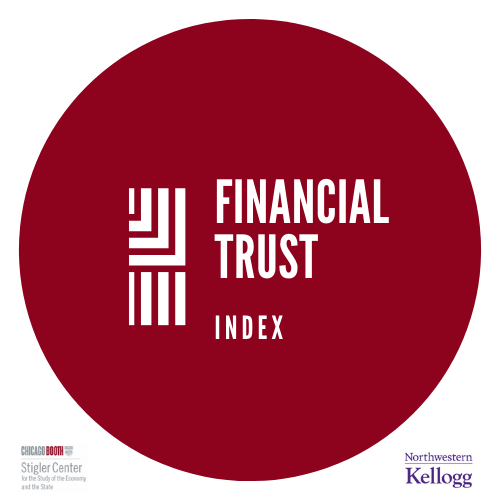The 2019 Chicago Booth/Kellogg School Financial Trust Index survey shows that 93 percent of participants don’t want to share their health data with digital platforms such as Facebook. If asked for a fair price for their records, more than half would demand more than $100,000.

In November, the Wall Street Journal reported that Google and the hospital network Ascension have been cooperating on a project in which Google was given access to the health data of millions of patients without their knowledge. A whistleblower revealed the previously unknown “Project Nightingale,” which gives Google access to up to 50 million people’s private medical records, before Google and Ascension officially signed the deal that month.
Health data has a very high value for tech companies, but such information does not usually have a price. Due to the high profitability of the health care industry in the United States, all major tech companies are competing to offer new services: Amazon, for example, launched a telemedicine-based pilot program for its employees in September. IBM has been working for five years on Watson Health analytics cloud, a diagnostic platform to help health care providers and researchers. Algorithms without data are useless; therefore, corporations need to have access to medical records. Are patients willing to give their consent?
The annual Financial Trust Index Survey, administered by the University of Chicago Booth School of Business and Northwestern University’s Kellogg School of Management, asked Americans whether they are interested in sharing their health data with Facebook. At the moment when survey questions were prepared, Project Nightingale was not yet public; therefore, the questions are focused on a hypothetical Facebook health project.
When asked if they were willing to share their health records with Facebook for free, almost all Americans answered with a clear and unambiguous “No.”

It looks like a matter of principle, not of money. The firm opposition to data sharing doesn’t change very much when survey participants are given the option to be paid for it. Only 9.6 percent of Americans are willing to share their records with the social platforms “not for free,” and 88 percent are not interested in the proposal at all. They simply don’t want to share any of their medical records.

However, since a small minority is interested in selling data, it is interesting to estimate the potential price of medical records. The Financial Trust Index Survey asked Americans to identify the minimum amount they would need to be paid to allow Facebook to have access to their health data. Answers are polarized: 26.5 percent of those who are keen to sell their data would do so for less than $1,000, while 56.8 percent would demand $100,000 or more.

Through Project Nightingale, Google gained access to 50 million people’s medical records—without the patients’ consent. If the company had to pay the minimum price required by Financial Trust Survey participants (less than $1,000 per person), it would have to pay up to $50 billion. With a price of $100,000 per person, the additional cost for Project Nightingale to collect 50 million health profiles would be unsustainable even for a giant company like Google: $5 trillion.
According to the FTI Survey results, if Americans are asked to share their medical data for free with a tech company, they would decline. If they agreed to sell the data, the cost for the company would be prohibitive, and the health care industry’s profitability for tech corporations would immediately disappear.
About the Index:
The Financial Trust Index captures the level of trust that Americans have in institutions. The study was conducted via telephone by SSRS, an independent research company. Interviews were conducted during the period of December 17–26, 2019, among financial decision-makers. A total of 1,019 interviews were conducted, with a margin of error for total respondents of +/-3.57 percent at the 95 percent confidence level.
The Financial Trust Index was created in 2008 as a means to study the changes in trust in the financial industry and the impact of those changes on investors’ decisions. The index monitors the annual level of Americans’ trust in institutions and regularly evaluates how current events, policy, and government intervention may affect it. The initiative is sponsored jointly by the University of Chicago Booth School of Business and the Kellogg School of Management at Northwestern University and is administered by Social Science Research Solutions.
The Survey Lead Authors are Paola Sapienza and Luigi Zingales. Paola Sapienza holds the Donald C. Clark/HSBC Chair in Consumer Finance at the Kellogg School of Management at Northwestern University. Luigi Zingales is the Robert R. McCormack Distinguished Service Professor of Entrepreneurship and Finance at the University of Chicago Booth School of Business and one of the editors of this website.
The ProMarket blog is dedicated to discussing how competition tends to be subverted by special interests. The posts represent the opinions of their writers, not necessarily those of the University of Chicago, the Booth School of Business, or its faculty. For more information, please visit ProMarket Blog Policy.






